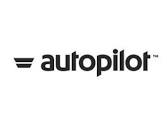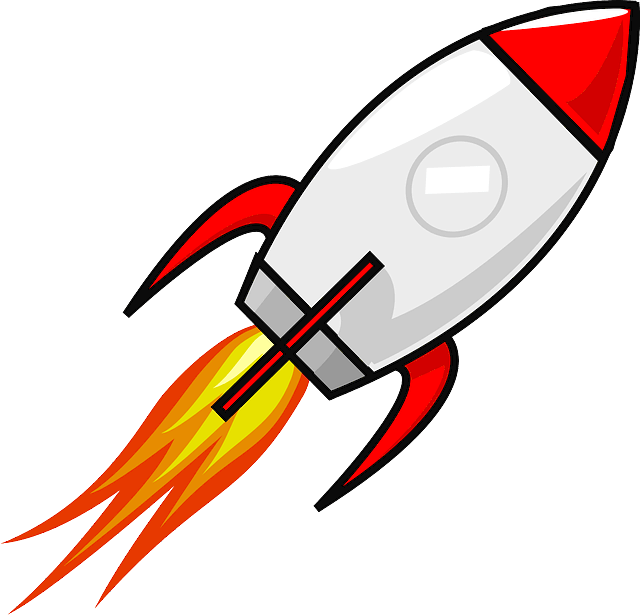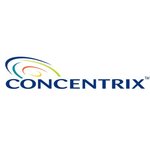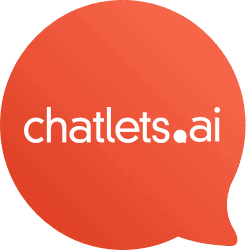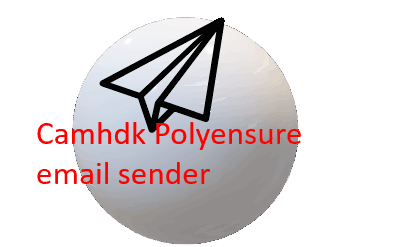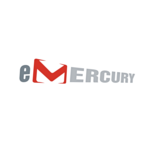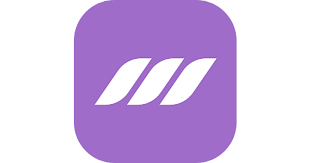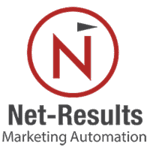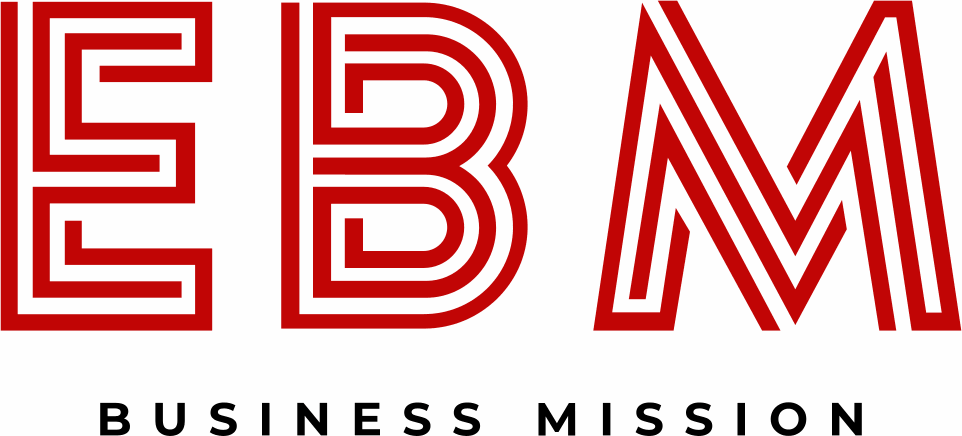Yes, most marketing automation software is accessible across numerous devices and platforms. This feature allows users to access the software from any location and at any time, making it ideal for remote work and on-the-go operations. Users can use the software on desktops, laptops, tablets, iOS, and Android devices. This accessible flexibility facilitates team collaboration and keeps teams up to date on marketing activities.
List of 20 Best Marketing Automation Software
InstaSky solution for managing your Instagram account with ease. Our powerful toolkit offers a multitude of add-ons to enhance your attraction, impressions, and engagement. Effortlessly handle all your Instagram tasks and see remarkable results. No m...Read More InstaSky
Eloqua, marketing automation software by Oracle, offers businesses the ability to create and execute successful campaigns across various channels. With its flexible platform, Eloqua enables targeted audience engagement, content marketing, and advance...Read More Oracle Eloqua
Klevu is a AI-powered software for ecommerce search and discovery. With its cutting-edge technology, Klevu enhances user experience and boosts conversion rates for renowned brands. Seamlessly integrating with any platform and offering real-time data...Read More Klevu
Campaigner is a email marketing solution for your business. With unlimited emails, responsive customer support, and advanced features like auto-responders and user segmentation, our software streamlines the process of reaching your audience and achie...Read More Campaigner
Autopilot is a marketing automation software designed to seamlessly integrate with Salesforce, Segment, and APIs. It enables businesses to elevate their marketing strategies through customized contact management. With Autopilot, organizations can eff...Read More Autopilot
CRM ON CLOUDS the CRM solution designed for small businesses and startups. Gain access to premium features at an unbeatable cost - absolutely free for up to 10 users and just $2 per additional user. Maximize efficiency by managing your sales, marketi...Read More CRM ON CLOUDS
Concentrix is a leading software solution for businesses looking to streamline their operations. Our cutting-edge AI technology and smooth integration process elevate your brand and foster long-term growth. Our unique blend of strategic expertise and...Read More Concentrix
Azalead is a leading marketing automation provider that specializes in advertising and retargeting solutions. Our platform utilizes advanced methods to identify website visitors and deliver personalized communications through proposal emails. We cont...Read More Azalead
Chatlets, this software designed to maximize micro conversions through the use of conversational interfaces and interactive forms. By leveraging both first-party and third-party data, Chatlets creates a personalized user experience that encourages sm...Read More Chatlets
Camhdk Polyensure - a powerful, free email sending software. Easily upload your email list and the program will automatically remove duplicates and check for syntax errors. You have complete control over the delivery time, with the option to add pers...Read More Camhdk
Apiway is a leading integration platform and marketplace that streamlines the process of finding the right b2b software for your business. Our user-friendly platform allows users to effortlessly connect multiple cloud applications with just a few cli...Read More Apiway
AWeber is a email marketing solution created specifically for entrepreneurs, businesses, and nonprofits seeking to increase their revenue and success. Through a range of user-friendly online tools, AWeber empowers businesses of all sizes to effective...Read More AWeber
Inbound Leads - the ideal solution for attracting potential leads on your website! Our highly visible notification bars placed strategically at the top of your webpages dramatically boost conversion rates. Never miss out on valuable leads again - wit...Read More Inbound Leads
Emercury is the top choice for businesses in need of email marketing solution with top-notch deliverability and engagement rates. Our platform simplifies the process of creating and executing email campaigns, while offering seamless integration optio...Read More Emercury
Dripify the LinkedIn automation platform, revolutionizes sales and lead generation tactics. This cutting-edge software, accessible on the cloud, empowers businesses to enhance brand recognition, expand their reach, and achieve optimal LinkedIn outcom...Read More Dripify
LoyaltyXpert is the industry-leading SaaS platform designed to simplify and streamline your digital channel engagement and loyalty programs. Say farewell to complications and welcome a seamless solution for managing sales and loyalty programs. Count...Read More LoyaltyXpert
Betaout is a customer engagement tool for businesses. With its ability to personalize marketing strategies, track user behavior, and automate communication, Betaout boosts customer retention and increases conversions. Powered by targeted campaigns an...Read More Betaout
Net-Results is the top marketing automation software for businesses of all sizes. Our all-inclusive platform offers an extensive range of capabilities such as lead generation and cultivation, email creation for all devices, seamless CRM integration,...Read More Net-Results
EBM SYS - Sunsofts innovative CLOUD-based Network Marketing solution. With a wide selection of 35 compensation plans and advanced AI technology, our software provides a secure platform for businesses to enhance their operations. Backed by top-notch s...Read More EBM SYS
ANU Ads Audience Connector, the top-of-the-line marketing automation software that is designed specifically for advertising networks. By seamlessly integrating Salesforce with popular networks like Tencent, ByteDance, Google, and Facebook, both local...Read More ANU Ads Audience Connector
Learn More About Marketing Automation Software
- What Is Marketing Automation Software?
- What Are The Recent Trends In Marketing Automation Software?
- Benefits Of Using Marketing Automation Software
- Important Factors To Consider While Purchasing Marketing Automation Software?
- What Are The Key Features To Look For In Marketing Automation Software?
- Why Do Businesses Need Marketing Automation Software?
- How Much Time Is Required To Implement Marketing Automation Software?
- What Is The Level Of Customization Available In Marketing Automation Software?
- Which Industries Can Benefit The Most From Marketing Automation Software?
- Conclusion
What Is Marketing Automation Software?
Marketing Automation Software is a powerful tool that enables organizations to streamline their marketing operations, automate monotonous tasks, and efficiently communicate with customers. It is a type of software that integrates many marketing methods, such as email marketing, social media management, lead generation, and customer relationship management (CRM), into a single unified platform.
At its heart, Marketing Automation Software seeks to improve and automate different areas of the marketing process, including lead generation, conversion, and retention. With capabilities like lead tracking, drip marketing, and targeted messaging, this software allows organizations to reach out to their target audience in a more personalized and efficient way.
One of the primary advantages of Marketing Automation Software is its potential to save time and resources by automating routine tasks and procedures. This enables firms to concentrate on other critical areas of their marketing strategy, such as developing valuable content and analyzing data. Another benefit of adopting Marketing Automation Software is the ability to track and measure the effectiveness of marketing initiatives.
Businesses can improve their overall marketing strategy by giving precise insights and analytics that help them understand their audience and make data-driven decisions. With the rise of digital marketing, Marketing Automation Software has become increasingly vital. It not only helps businesses stay competitive in the ever-changing digital marketplace, but it also allows them to more efficiently manage their marketing efforts and get better outcomes.
When choosing Marketing Automation Software, seek for features that are relevant to your individual business needs. Evaluate the platform's capabilities, usability, and compatibility with your current tools and systems. Investing in the correct Marketing Automation Software can greatly boost your marketing efforts and business success.
What Are The Recent Trends In Marketing Automation Software?
Marketing automation software is continuously evolving to satisfy the changing demands and needs of organizations in today's digital age. As technology evolves and customer behavior changes, marketers must adapt to stay ahead of the competition.
Let's look at the latest innovations in marketing automation software and how they can help your company.
1. Artificial Intelligence (AI) Integration: AI capabilities are increasingly being integrated into marketing automation tools. This technology enables more personalized and targeted marketing efforts since AI can evaluate consumer behavior and data to forecast and recommend effective methods and campaigns.
2. Omnichannel Marketing: With the proliferation of communication channels, it has become critical for organizations to have a strong presence on all platforms. Marketing automation software is now equipped with omnichannel capabilities, allowing marketers to deliver consistent and seamless consumer experiences across many channels such as email, social media, and mobile.
3. Account-Based Marketing (ABM): ABM is a targeted marketing strategy that focuses on developing connections with specific, high-value accounts. Marketing automation software has adapted to this trend, offering tools and capabilities to assist firms in tracking and engaging with key accounts.
4. Data Privacy And Compliance: As strict data privacy requirements such as the General Data Protection Regulation (GDPR) take effect, marketing automation software evolves to assure compliance. This covers functions including safe data storage, consent management, and data tracking and reporting.
5. Extensive Analytics: Marketing automation software now includes extensive analytics features that provide insights into campaign performance, lead creation, consumer behavior, and more. Businesses can use these insights to make data-driven decisions that will improve their marketing efforts.
6. Mobile Shift: As the use of mobile devices grows, marketing automation software follows suit. Mobile-responsive designs and campaign templates are now available, allowing businesses to create and track campaigns on mobile devices.
7. Personalization: Today's consumers want brands to provide tailored experiences. Marketing automation software now includes capabilities for gathering and analyzing customer data, allowing firms to tailor their marketing messages and content for higher engagement and conversion rates.
Benefits Of Using Marketing Automation Software
Marketing automation software provides numerous benefits to businesses of all sizes. It is a strong tool that simplifies marketing procedures and allows you to contact your target audience more effectively.
We'll look at the main advantages of adopting marketing automation software and how it can help your marketing efforts.
1. Saves Time And Effort: One of the primary benefits of implementing marketing automation software is that it saves a significant amount of time and work. Automation allows you to schedule and automate repetitive processes like email marketing, social media updates, and lead nurturing. This gives you more time to focus on other vital parts of your business.
2. Increases Efficiency: Marketing automation software improves operations and eliminates manual activities, increasing efficiency. It enables you to construct individualized and targeted programs, which can produce better results than generic marketing initiatives. Automation enables you to track and analyze campaign performance, making it easier to optimize and improve your plans.
3. Improves Lead Nurturing: Marketing automation software is a game changer in lead nurturing. It allows you to segment your leads and offer them unique and relevant material based on their behavior and interests. This helps to strengthen relationships with your leads, boosting the likelihood of conversion.
4. Improves Customer Engagement: Marketing automation tools can also help you improve client engagement. You can keep your consumers engaged throughout their journey by offering services such as automated email responses, social media management, and personalized content. This results in greater brand loyalty and retention.
5. Allows For Data-Driven Decisions: Making Data is critical for making informed business decisions. Marketing automation software provides you with valuable statistics and data about your campaigns, audience, and performance. This aids in identifying areas for improvement and making data-driven decisions about future initiatives.
Important Factors To Consider While Purchasing Marketing Automation Software?
When it comes to selecting the best marketing automation software for your company, several crucial elements must be addressed.
While each organization may have unique needs and priorities, here are some crucial aspects to consider while making the decision:
1. Understanding Your Business Needs: Before plunging into the world of marketing automation tools, you must first establish your specific business requirements and goals. What areas of automation can help you optimize your procedures and get better results? This will allow you to limit down your selections and select software that is consistent with your goals.
2. Features And Functionality: Marketing automation software offers a wide range of features and capabilities, including lead generation, email marketing, lead scoring, and social media automation. It is critical to assess the features and functionality that are critical for your organization and select software that provides the necessary tools to achieve your marketing objectives.
3. Integration Capabilities: In today's digital landscape, firms use a variety of tools and platforms for marketing purposes. When choosing marketing automation software, you should evaluate its integration possibilities with other products and systems you already use. This will facilitate the smooth flow of data and contextual information between systems, resulting in a better overall user experience.
4. User-Friendly Interface: A user-friendly interface is critical for the software's ease of adoption and efficiency. Look for software with a clean, intuitive design that is simple to use, especially for non-technical individuals. This will save time and money on training and onboarding your personnel.
5. Scalability And Pricing: As your firm expands, your marketing requirements will change. It is critical to select marketing automation software that is scalable and can meet your company's evolving needs. Furthermore, analyze the software's pricing strategy, which may be based on the amount of contacts, features, or a flat charge, and select the one that suits your budget and provides the best value for your investment.
6. Customer Support: In the event of a technical issue or concern, it is critical to have access to dependable and rapid customer assistance. Look for a software provider that provides a range of support methods, including phone, email, and live chat, as well as a track record of timely and effective help.
When choosing marketing automation software for your organization, keep these points in mind to make an informed purchase. Take the time to investigate and compare many possibilities, then select the one that best meets your company's objectives and goals. With the appropriate marketing automation software, you can streamline your operations, enhance productivity, and achieve greater outcomes for your company.
What Are The Key Features To Look For In Marketing Automation Software?
Marketing automation software has become a must-have tool for firms of all sizes to efficiently manage their marketing initiatives. This software has transformed how organizations reach out to and communicate with their customers by automating monotonous chores and streamlining marketing procedures. However, with so many options available on the market, it can be difficult for consumers to select the proper software.
To help you make an informed decision, here are some crucial elements to look for in marketing automation software.
1. Email Marketing Automation: One of the most important aspects to look for in marketing automation software is the ability to automate email marketing campaigns. This involves creating tailored emails, segmenting contacts, scheduling email sends, and monitoring email performance. Make sure the program has a user-friendly email builder and interfaces with the email service provider of your choosing.
2. Lead Management: The software should include a strong lead management system that enables you to gather, track, and nurture leads effectively. Look for features such as lead scoring, segmentation, tracking, and nurturing. This will allow you to better analyze your leads' behaviors and customize your marketing efforts accordingly.
3. Social Media Management: Given the increasing importance of social media in all aspects of marketing, it is critical to select marketing automation software that includes social media management features. This should offer options for scheduling postings, monitoring social media conversations, and analyzing social media performance.
4. Analytics And Reporting: A good marketing automation software should include detailed analytics and reporting to help you understand your marketing performance. To assess the effectiveness of your marketing activities, look at metrics such as email open and click-through rates, lead conversion rates, website traffic, and campaign ROI.
5. CRM Integration: To provide a comprehensive view of your customer data, the software should smoothly link with your CRM system. This allows you to create targeted and tailored marketing campaigns based on your consumers' behavior and interests.
6. Workflow Automation: Another important feature to look for is the ability to automate workflows, which saves time and effort. This involves automated lead nurturing, email routines, and social media postings.
7. Scalability: As your company expands, your marketing requirements will evolve. Choose marketing automation software that can scale with your company and provides new features and functionality to meet your changing needs.
Why Do Businesses Need Marketing Automation Software?
In today's fast-paced and competitive company environment, effective marketing is critical to success. However, as firms expand and clients become more sophisticated, handling marketing efforts manually becomes more difficult and time-consuming. Here's where marketing automation software comes in. It is an effective solution for automating a variety of marketing operations, including lead nurturing, email campaigns, social media management, and data analytics.
Businesses can save time and resources by streamlining and automating repetitive operations, resulting in increased marketing efficiency. Marketing automation software also enables firms to target and tailor their marketing efforts to individual clients using data-driven insights. This tailored strategy not only generates higher-quality leads, but it also increases consumer engagement and loyalty.
Furthermore, marketing automation software offers detailed analytics and reports, allowing organizations to track the success of their marketing initiatives and make data-driven decisions about future plans. In addition, marketing automation allows organizations to create focused programs to nurture leads and move them through the sales funnel. This helps to improve lead conversion and income. Furthermore, marketing automation software connects with other critical company software, such as customer relationship management (CRM) systems, to ensure a continuous flow of data and streamline marketing activities even further.
How Much Time Is Required To Implement Marketing Automation Software?
The timing for adopting marketing automation software varies depending on a number of factors. These factors include the complexity of your business processes, the size of your organization, the level of customization required, and the degree of data integration. On average, the implementation process takes between 2 and 6 months, with some companies needing a year or more.
It is critical to understand that the time required for implementation does not reflect the software's quality or capabilities. Instead, it reflects the effort required to customize the software to your specific company requirements. An implementation plan is essential for ensuring a smooth implementation process. This plan should include identifying key stakeholders, setting realistic goals, and developing a timeframe with clear milestones.
It is also critical to maintain constant communication with the software provider in order to keep on track and handle any concerns as soon as possible. Having a dedicated team in charge of software setup and training is beneficial during the implementation phase. This staff should also be familiar with your company's operations and goals to ensure that the software is properly configured.
It is also necessary to schedule time for data migration and system integration. This stage can take a long time, depending on the complexity of your data and the systems it needs to interface with. Overall, while the adoption of marketing automation software may appear time-consuming, the benefits it provides to your firm will outweigh the time and money involved. With appropriate planning, communication, and a motivated team, you can successfully adopt marketing automation software and elevate your marketing efforts to new heights.
What Is The Level Of Customization Available In Marketing Automation Software?
Marketing automation software provides a variety of customization possibilities to meet the unique needs of your company. The scope of customization is enormous, ranging from crafting individualized ads to tracking and analyzing client data.
Let's take a closer look at the level of customisation offered by marketing automation software so you can make an informed decision for your company.
1. Personalization Of Client Communications: One of the primary advantages of marketing automation software is the ability to customize client communications. This means you may personalize emails, social media postings, and other marketing materials to meet the specific needs and interests of your clients. The program generates customized content based on client interactions and behavior, resulting in increased engagement and conversion rates.
2. Segmentation And Targeting: Successful marketing requires targeting the right audience with the correct message. Marketing automation software enables you to segment your consumer base based on a variety of factors, including demographics, interests, and behaviors. This level of personalization allows you to send relevant and targeted communications to certain groups, increasing the odds of conversion.
3. Customized Campaigns: Marketing automation software allows you to develop highly customized campaigns based on your company's goals and target demographic. Whether you want to increase lead generation, promote a new product, or nurture existing consumers, the software allows you to create campaigns that are tailored to your specific goals.
4. Personalized Landing Sites: In addition to email and social media, marketing automation software allows you to personalize landing sites. This allows you to build unique experiences for different subsets of your audience, resulting in a more targeted and effective marketing plan.
5. Data Analysis And Reporting: In addition to content and targeting customization, marketing automation software includes a variety of data analysis and reporting tools. This means you can continually enhance your marketing efforts by tracking campaign success and making data-driven decisions.
Which Industries Can Benefit The Most From Marketing Automation Software?
Marketing automation software has emerged as a critical tool for organizations of all sizes and industries in today's fast-paced and competitive marketplace. This software streamlines marketing operations, improves client targeting and engagement, and boosts business efficiency and ROI. While marketing automation software has a wide range of uses, some businesses can reap greater benefits than others.
Here are the top sectors that can gain the most from deploying marketing automation software:
1. E-commerce: As online shopping becomes more popular, e-commerce enterprises must implement effective marketing strategies to attract and keep customers. To optimize their marketing efforts, firms can use marketing automation software to segment their audience, develop targeted messaging, and measure customer behavior.
2. B2B: Marketing automation is ideal for B2B firms because it allows them to automate lead nurturing and prospecting, track and analyze lead interactions, and measure campaign effectiveness. This software also enables more efficient coordination between sales and marketing teams, resulting in higher lead conversion and revenue production.
3. Healthcare: As the healthcare business becomes more competitive, marketing automation can assist professionals and companies in reaching their target audience and developing strong patient relationships. These solutions allow healthcare organizations to provide personalized material and reminders, automate appointment scheduling, and connect effectively with patients.
4. Education: In addition to traditional advertising tactics, educational institutions can use marketing automation to reach students and parents with individualized and targeted campaigns. This software can help you improve registration processes, engage with students, and track the effectiveness of marketing campaigns.
5. Financial Services: With rigorous laws and a highly competitive environment, financial service firms can use marketing automation to acquire and keep customers. Automation can help with email and social media marketing, lead nurturing, and campaign performance measurement.
6. Travel And Hospitality: To be competitive in the ever-changing travel and hospitality industry, organizations must personalize their marketing techniques to each customer. Marketing automation software can segment audiences, send targeted offers and promotions, and track client interactions, all of which lead to greater bookings and loyalty.
Finally, every industry that focuses on developing and keeping client relationships can profit from marketing automation technology. By automating monotonous operations, personalizing client contacts, and giving complete statistics, this software may significantly improve marketing efforts and promote corporate success. Consider your industry's specific requirements when choosing marketing automation software to ensure the greatest fit for your company.
Conclusion
To summarize, selecting the correct marketing automation software is critical for every modern organization trying to streamline its marketing activities and increase productivity. Our detailed buyer's guide has covered all of the important elements to consider while comparing different alternatives on the market. First and foremost, you must examine your specific business needs and goals, and then hunt for software that has the features and capabilities to match those requirements.
This covers tools like lead management, multi-channel automation, and analytics. Second, assess the software's integration and compatibility with your existing tools and systems. The level of automation and efficiency can be considerably increased by seamless interaction with other marketing tools and platforms. Additionally, it is critical to search for a user-friendly interface and intuitive design, as well as the availability of support and training resources, so that your staff can fully utilize the software.
Before making a final selection, analyze the pricing model and total cost, including any additional expenses. It is advisable to choose software with scalable pricing choices, which ensures that you only pay for the functionality and resources you require. With this buyer's guide, we aim to have supplied you with useful information and considerations for making an informed selection on the finest marketing automation software for your company. Keeping these factors in mind will help you achieve efficient and automated marketing procedures.
Marketing Automation Software FAQ's
Can Marketing Automation Software Be Accessed Across Multiple Devices And Platforms?
Is Marketing Automation Software Future-Proof And Adaptable To Emerging Technologies Like AI, Blockchain Or IoT?
Marketing automation software is always changing and adapting to new technologies. It is future-proof and can seamlessly connect with upcoming technologies like AI, blockchain, and IoT. Marketers may use AI-powered automation to tailor their communications and more effectively target customers.
Blockchain technology can help improve data security and transparency. Additionally, IoT integration can aid in the automation and optimization of marketing activities. As a result, investing in marketing automation software is a wise move for organizations seeking to stay competitive in today's fast-paced digital landscape.
Is There A Free Trial Offered To Assess Marketing Automation Software Before Committing?
Yes, many marketing automation software firms provide a free trial period in which users can test their platform before making a commitment. This enables organizations to decide whether the software is a suitable fit for their requirements and worth investing in. During the trial, users can explore the software's features and functionality to assess its success in easing marketing operations and promoting corporate growth.
Does Marketing Automation Software Offer Data Security Features And Meet Regulatory Compliance Standards?
Yes, data security is a critical element of Marketing Automation Software. It protects the confidentiality, integrity, and availability of your data using a variety of security techniques such as data encryption, user authentication, and access controls. This not only safeguards your sensitive information, but it also helps you meet legal standards like GDPR, HIPAA, and CCPA. With Marketing Automation Software, you can be confident that your data is secure and compliant with industry standards.
Can Marketing Automation Software Integrate Seamlessly With Existing Tools And Platforms?
Yes, most marketing automation software is designed to work easily with other products and platforms. Marketing automation software can be readily coupled with your CRM, email marketing software, or social media platforms to help you improve your marketing results.
This enables for a more simplified and efficient approach, saving you time and effort while maintaining a unified and effective marketing strategy. Marketing automation software provides a full and holistic solution for your marketing needs, as it can interface with different tools and platforms.





